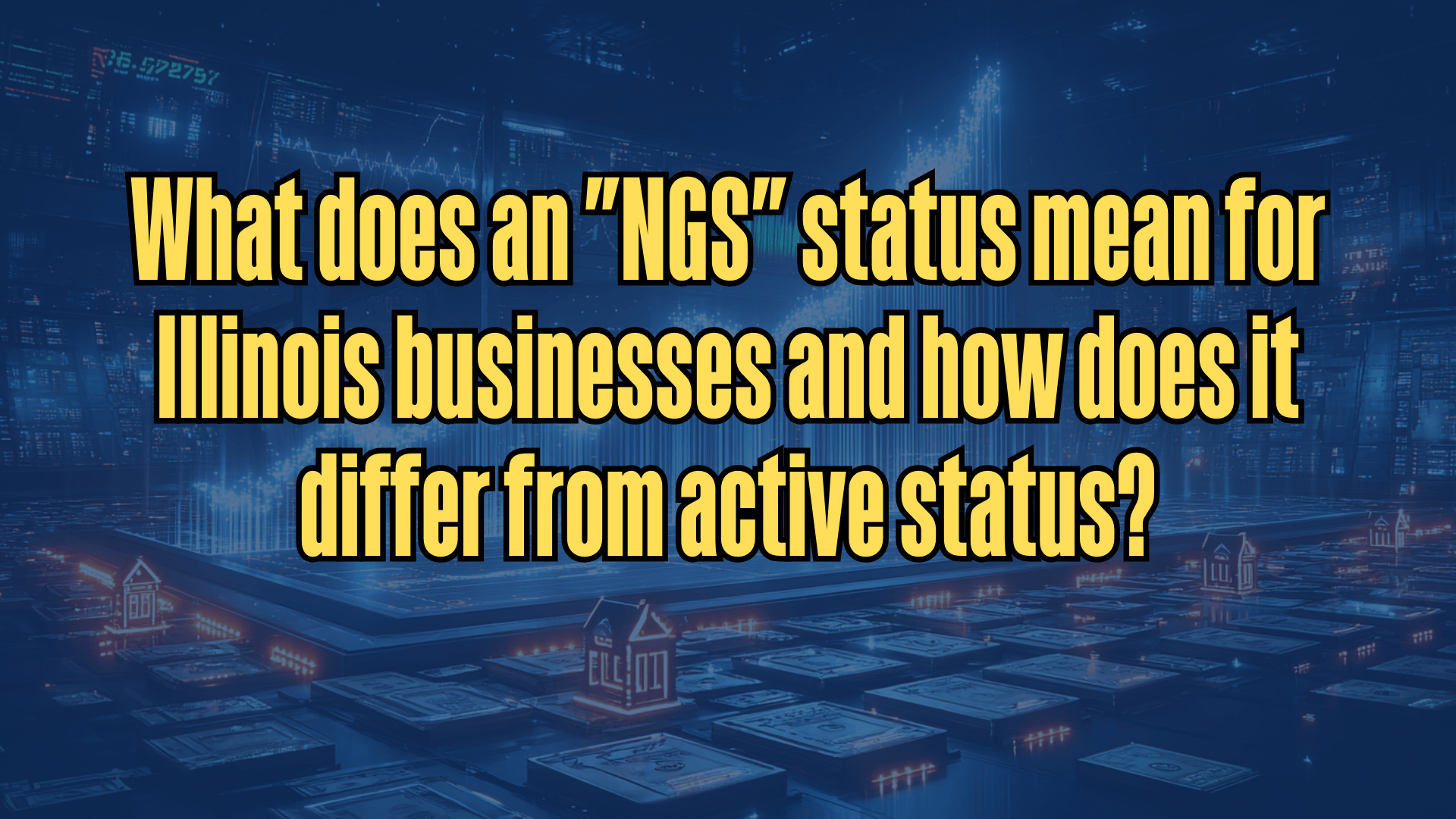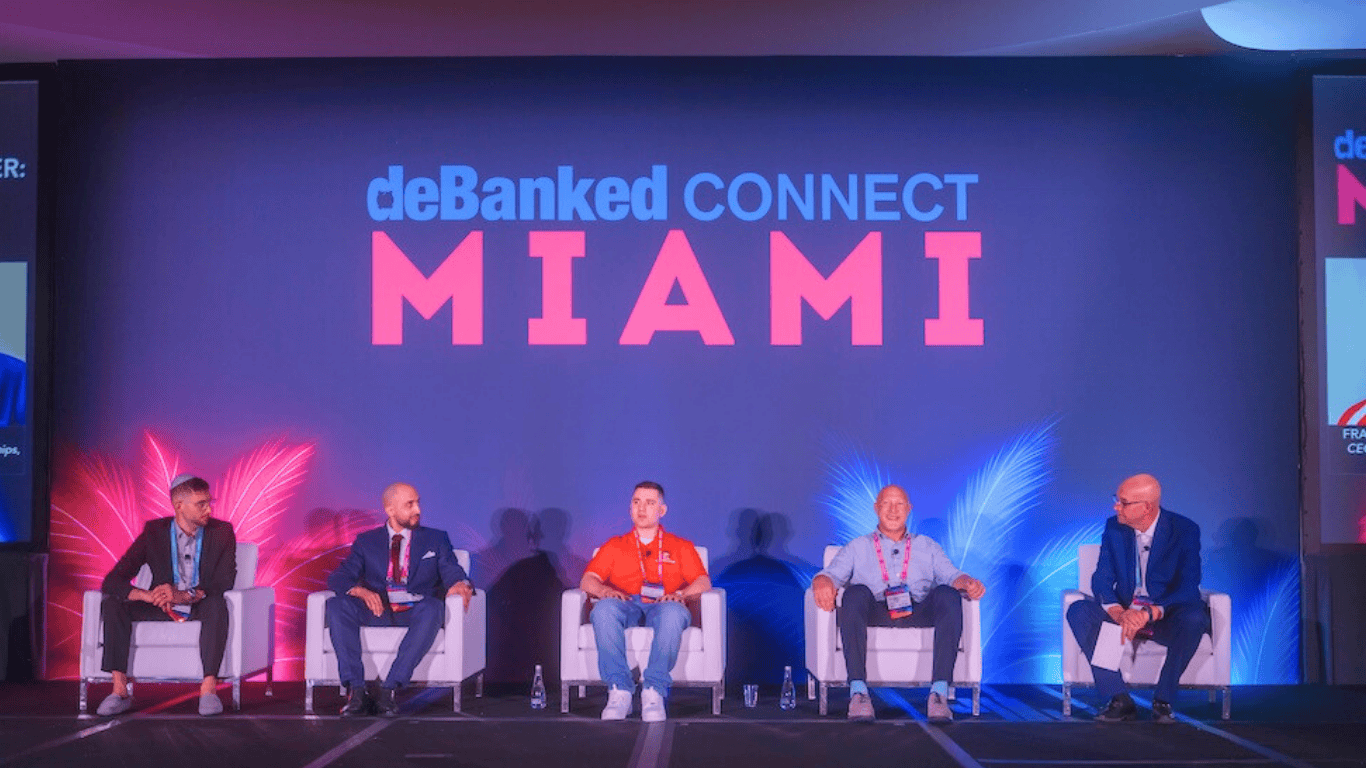An NGS status is a flashing yellow light, demanding a deeper dive than a straightforward 'Active' designation. Let's unpick what these mean for businesses in the Prairie State and, crucially, for your lending decisions.
The Illinois Business Landscape: Status as a Predictor of Risk
Illinois, like other states, maintains a registry of business entities, each assigned a status reflecting its compliance with state regulations. These statuses are not merely administrative labels; they are vital indicators of a business's operational health, legal legitimacy, and overall risk profile. Relying on real-time data from primary sources, such as that provided by a Secretary of State (SOS) API, is therefore essential to prevent "wasted effort on problematic applications".
What Does 'Not Good Standing (NGS)' Mean for Illinois Businesses?
In Illinois, a "Not Good Standing (NGS)" status indicates that "The business is currently operational but has not met certain state requirements, such as filing deadlines or fee payments, and is at risk of further penalties or dissolution if not rectified". This is a critical distinction from full operational cessation, as the business is still attempting to operate despite its non-compliance.
- Implications of Non-Compliance: An NGS status suggests that the business has fallen short on fundamental legal obligations. This could range from failing to file an annual report by the due date to neglecting to pay required state fees. For a lender, this signals a potential lack of administrative diligence or, more concerningly, underlying financial strain that prevents the business from meeting basic compliance costs. Such oversights can lead to escalating penalties and, ultimately, involuntary dissolution, directly impacting a borrower's ability to service debt.
- Operational Instability and Legal Vulnerability: While an NGS business might still be "currently operational", its ability to engage in certain legal actions or contracts can be compromised. This legal vulnerability could hinder its capacity to conduct business effectively, enforce agreements, or even access future capital, thereby increasing its operational instability. Lenders need to consider how this could affect the business's revenue generation and long-term viability, making it a higher risk proposition.
- A Stepping Stone to Further Deterioration: An NGS status is often a precursor to more severe administrative actions, such as administrative dissolution or revocation, if the non-compliance issues are not addressed. For lenders, catching a business at the NGS stage allows for proactive engagement and a deeper investigation into the root cause of the non-compliance. This early detection is vital for mitigating risk, preventing exposure to entities likely to degrade further, and avoiding "wasted effort on problematic applications". Automated SOS API solutions provide "real-time data retrieval" to spot such critical shifts in status instantly.
What Does 'Active' Status Mean for Illinois Businesses?
Conversely, an "Active" status in Illinois means "The business is currently operational, compliant with all legal requirements, and recognized as a valid entity by the state of Illinois". This status is generally the most favourable for lenders, indicating a business that is meeting its foundational legal and administrative duties.
- Signal of Reliability and Good Governance: An active status demonstrates that a business is consistently adhering to state laws, including timely filings and fee payments. This typically "indicates a lower risk for lenders, as it suggests the business is meeting its legal obligations and maintaining good standing, which can be a positive indicator of financial responsibility and operational stability". It implies a level of organisational maturity and responsible management that is crucial for building trust in a lending relationship.
- Unimpeded Operational Capacity: An active business is legally authorised to conduct its full range of operations without state-imposed restrictions related to its entity status. This includes entering contracts, issuing shares (if applicable), maintaining bank accounts, and pursuing legal actions, all of which are critical for its ability to generate revenue and fulfil financial obligations. For lenders, this means fewer external legal impediments to the borrower's operational and repayment capacity.
- Foundation for Further Due Diligence: While 'Active' is a positive sign, it's just one piece of the puzzle. It provides a solid baseline for further financial and credit assessments. Lenders still need to leverage a comprehensive suite of verification tools, including TIN verification and UCC filing data, to gain a "multilayered approach to risk assessment and fraud prevention". Cobalt Intelligence's API, for instance, offers these additional checks alongside SOS data, providing "full visibility" into a business's financial health.
Key Differences: NGS vs. Active – A Lender's Framework
The fundamental difference between NGS and Active status lies in compliance and the associated risk profile they present to lenders.
- Compliance vs. Non-Compliance: The 'Active' status unequivocally states that a business is "compliant with all legal requirements", whereas 'NGS' explicitly signifies that the business "has not met certain state requirements". This is the clearest differentiator. An active business demonstrates a proactive approach to regulatory adherence, while an NGS business shows a reactive or neglectful stance, putting it "at risk of further penalties or dissolution".
- Risk Assessment and Underwriting Impact: For lenders, this translates directly into risk. An 'Active' business generally presents a "lower risk for lenders" because its compliance suggests "financial responsibility and operational stability". An 'NGS' business, however, "raises concerns about the entity's financial management and compliance practices, potentially indicating increased risk". This heightened risk necessitates more thorough due diligence, potentially leading to less favourable loan terms, higher interest rates, or even outright rejection of the application, to avoid "wasted effort on problematic applications".
- Stability vs. Instability: An 'Active' business projects stability and predictability in its legal standing, providing confidence that it can consistently operate and meet obligations. An 'NGS' status, while not an immediate death knell, implies an underlying instability or "potential financial or operational issues" that could affect the business's ability to operate legally and meet loan obligations. This unpredictability makes it a significantly less attractive borrower. Automated solutions, like Cobalt Intelligence's SOS API, help lenders "instantly screen names against the OFAC SDN list" and "uncover liens instantly", to get a holistic view of financial stability.
The Bottom Line for Institutional Lenders: Precision, Speed, and Automation
For alternative business lenders and institutional executives, understanding these status nuances in Illinois is not optional; it’s a strategic imperative. The 'NGS' status is a clear warning sign that, while not always fatal, demands immediate and thorough investigation into the borrower's administrative and financial health.
Leveraging a sophisticated SOS API, such as that offered by Cobalt Intelligence, is critical for gaining these insights rapidly and accurately. Our API provides:
- Real-time status checks: Directly pulling "real-time data" from state databases ensures you're always working with the most current information, spotting an NGS status the moment it's updated.
- Normalised data: Our API normalises the disparate state terminologies, providing both the raw status and a clear "active" or "inactive" flag, simplifying complex decisions.
- Comprehensive verification: Beyond just status, our services integrate TIN verification, UCC filing data, and court records, to provide a complete picture of a business's compliance and financial obligations. This "multi-source verification" helps in accurately assessing risk and combating fraud.
Don't let a subtle status change compromise your portfolio. Empower your underwriting team with the precision and speed of real-time, primary-source data to make informed, confident lending decisions in Illinois and beyond.












.png)